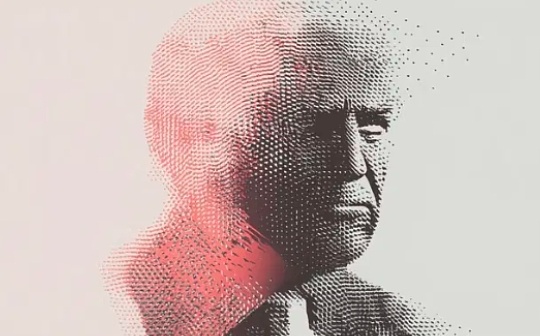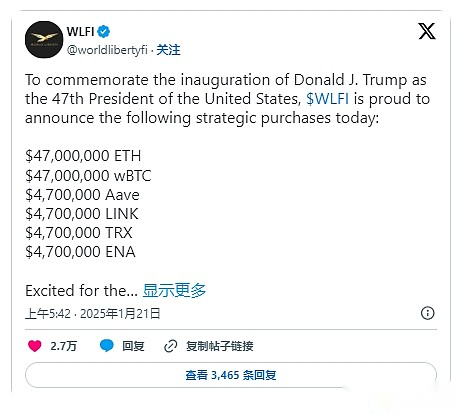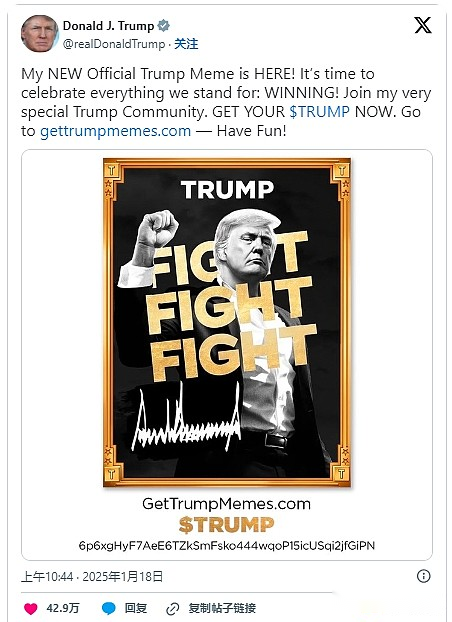
Author: Jack Inabinet, Bankless; Compilation: Deng Tong, Bitchain Vision
Donald Trump is likely to be the biggest star in the issuance of crypto tokens of all time.In addition to the NFT transaction card collection, the 47th President of the United States has released two different tokens for crypto enthusiasts to imitate.
While regulators have released limited information on how they intend to regulate the crypto industry, a closer look at the unique facts and circumstances of Trump’s two tokens may generate important insights into how his administration applies policies to digital assets.
today,We will uncover the significant difference between WLFI and TRUMP, trying to understand how the Trump administration regulates crypto tokens.
WLFI details
World Liberty Financial is a DeFi project related to the Trump family.Although practical applications have not been deployed yet, the current development plan shows that World Liberty Financial will become a fork for Aave Aave V3, a popular Ethereum native cryptocurrency lending market.
Despite the lack of a real-time protocol, World Liberty Financial has decided to deploy its own token, WLFI, which can be purchased on the Ethereum blockchain with a total supply of 25 billion.
Although not explicitly stated as a digital asset securities, only persons exempt from compulsory registration under SEC regulations D and S (i.e., recognized U.S. and unauthorized international investors) can invest in WLFI due to the inherent regulatory uncertainty of token sales.
Additionally, to ensure that the token does not fall into the hands of investors who do not meet WLFI sales standards, the token is subject to transfer restrictions, meaning it cannot be sent between wallets or sold on the open market.
Similar to stockholders, WLFI holders have the right to submit and approve future governance proposals that shape World Liberty Financial, and similar to investment funds, the World Liberty Financial team can conduct financial management activities at their own discretion.

TRUMP Detailed explanation
On the eve of President Trump’s inauguration, the aptly named TRUMP token was deployed to Solana Solana, a memecoin with a portrait of Donald and last name.
Just asAs explicitly stated on the official website of TRUMP Tokens, this memecoin is not an “investment opportunity, investment contract or any type of securities”.
Users visiting the TRUMP token website are instructed to purchase tokens using the centralized cryptographic portal Moonshot, which requires the user to provide personally identifiable information for regulatory purposes, but anyone can purchase such digital assets without a KYC without a KYC through popular decentralized Solana exchanges such as Jupiter.
Although President Trump publicly mentioned his related memecoin,The TRUMP token has neither a roadmap nor practicality, and its developers have no promises to provide such features in the future.

Far-reaching impact
Trump’s two tokens have very different requirements for buyers.While anyone can buy a Trump meme, only recognized U.S. and unapproved international investors can participate in WLFI.
Although U.S. financial regulators have not yet enacted the composition of digital asset securities, it is certain that U.S. President and de facto SEC Chairman Donald Trump will not knowingly violate applicable securities regulations.
Given this framework, the unique facts and circumstances surrounding the offering seem to suggest that any practical token (including governance rights or cash flow rights) may be subject to the jurisdiction of the U.S. Securities and Exchange Commission as a digital asset securities.
on the contrary,Digital asset collections (such as memecoin) may be explicitly non-financial products, thus exempting from regulatory and registration requirements.
We certainly don’t have all the answers, but the Trump administration has shown a desire to build the United States into the world’s cryptocurrency capital, and his administration has also prioritized feedback on how existing laws are applied to digital assets, so in the near future, most areas of the cryptocurrency industry may be subject to securities regulation.
While this development may undermine the current market balance and cause some tokens to lose investor favor, regulation itself is not a bad thing for an industry seeking mass adoption; it will open an unprecedented era of access and innovation for blockchain technology!
To work with large companies, such as financial institutions that control funds and bear huge compliance burdens, the cryptocurrency industry must first achieve compliance.








